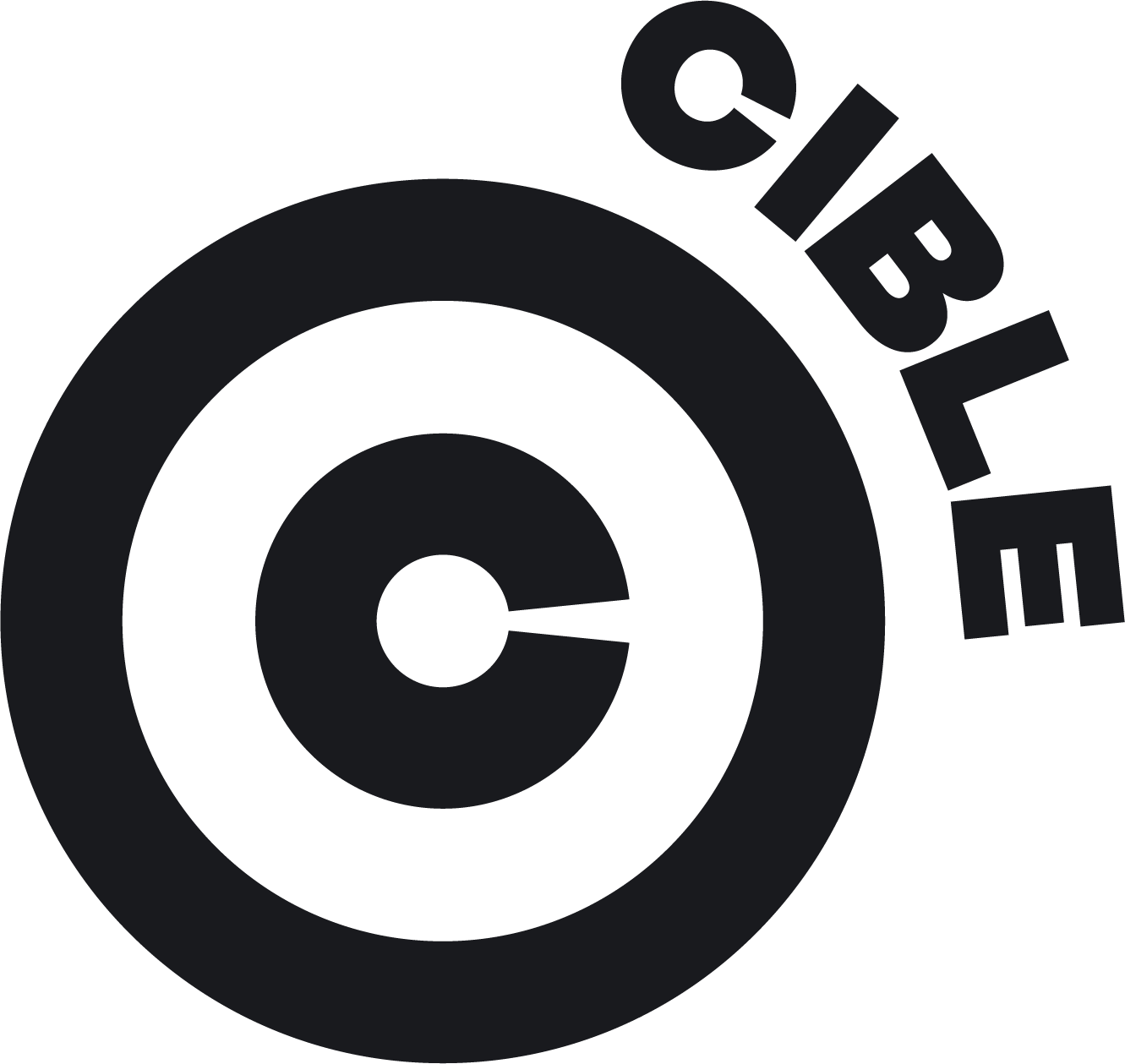

Cible

Liège, Belgium
May 2024
Social networks & info sharing
Service with Minor Environmental Footprint
Belgium,
France
Cible, c’est une agence de communication composée de vingt cerveaux créatifs en ébullition qui poursuivent un même objectif ; celui de retourner l’univers de nos clients pour transformer leur histoire en une com légendaire… et surtout utile. C’est pourquoi notre engagement ne se limite pas qu’au design de vos succès. Il est aussi sociétal et environnemental pour délivrer une com responsable. Qu’il s’agisse de développer un accompagnement stratégique sur mesure, d’imaginer un rebranding digne de siéger à Times Square ou de créer du contenu digital prêt à concurrencer les dernières trends, nous sommes l’agence de communication, l’agence événementielle, l’agence de production vidéo dont vous avez besoin pour faire rayonner votre projet comme jamais auparavant. Bref, nous faisons bien plus que de la com. Nous l’envisageons sous toutes ses formes de manière durable pour qu’elle corresponde à qui vous êtes, dans les moindres détails. Nous ne prétendons pas changer le monde. Par contre, on va sûrement bouleverser le vôtre et celui autour de vous.
Overall B Impact Score
Governance 19.2
Governance evaluates a company's overall mission, engagement around its social/environmental impact, ethics, and transparency. This section also evaluates the ability of a company to protect their mission and formally consider stakeholders in decision making through their corporate structure (e.g. benefit corporation) or corporate governing documents.
What is this? A company with an Impact Business Model is intentionally designed to create a specific positive outcome for one of its stakeholders - such as workers, community, environment, or customers.
Workers 32.7
Workers evaluates a company’s contributions to its employees’ financial security, health & safety, wellness, career development, and engagement & satisfaction. In addition, this section recognizes business models designed to benefit workers, such as companies that are at least 40% owned by non-executive employees and those that have workforce development programs to support individuals with barriers to employment.
Community 19.2
Community evaluates a company’s engagement with and impact on the communities in which it operates, hires from, and sources from. Topics include diversity, equity & inclusion, economic impact, civic engagement, charitable giving, and supply chain management. In addition, this section recognizes business models that are designed to address specific community-oriented problems, such as poverty alleviation through fair trade sourcing or distribution via microenterprises, producer cooperative models, locally focused economic development, and formal charitable giving commitments.
Environment 10.1
Environment evaluates a company’s overall environmental management practices as well as its impact on the air, climate, water, land, and biodiversity. This includes the direct impact of a company’s operations and, when applicable its supply chain and distribution channels. This section also recognizes companies with environmentally innovative production processes and those that sell products or services that have a positive environmental impact. Some examples might include products and services that create renewable energy, reduce consumption or waste, conserve land or wildlife, provide less toxic alternatives to the market, or educate people about environmental problems.
Customers 2.9
Customers evaluates a company’s stewardship of its customers through the quality of its products and services, ethical marketing, data privacy and security, and feedback channels. In addition, this section recognizes products or services that are designed to address a particular social problem for or through its customers, such as health or educational products, arts & media products, serving underserved customers/clients, and services that improve the social impact of other businesses or organizations.